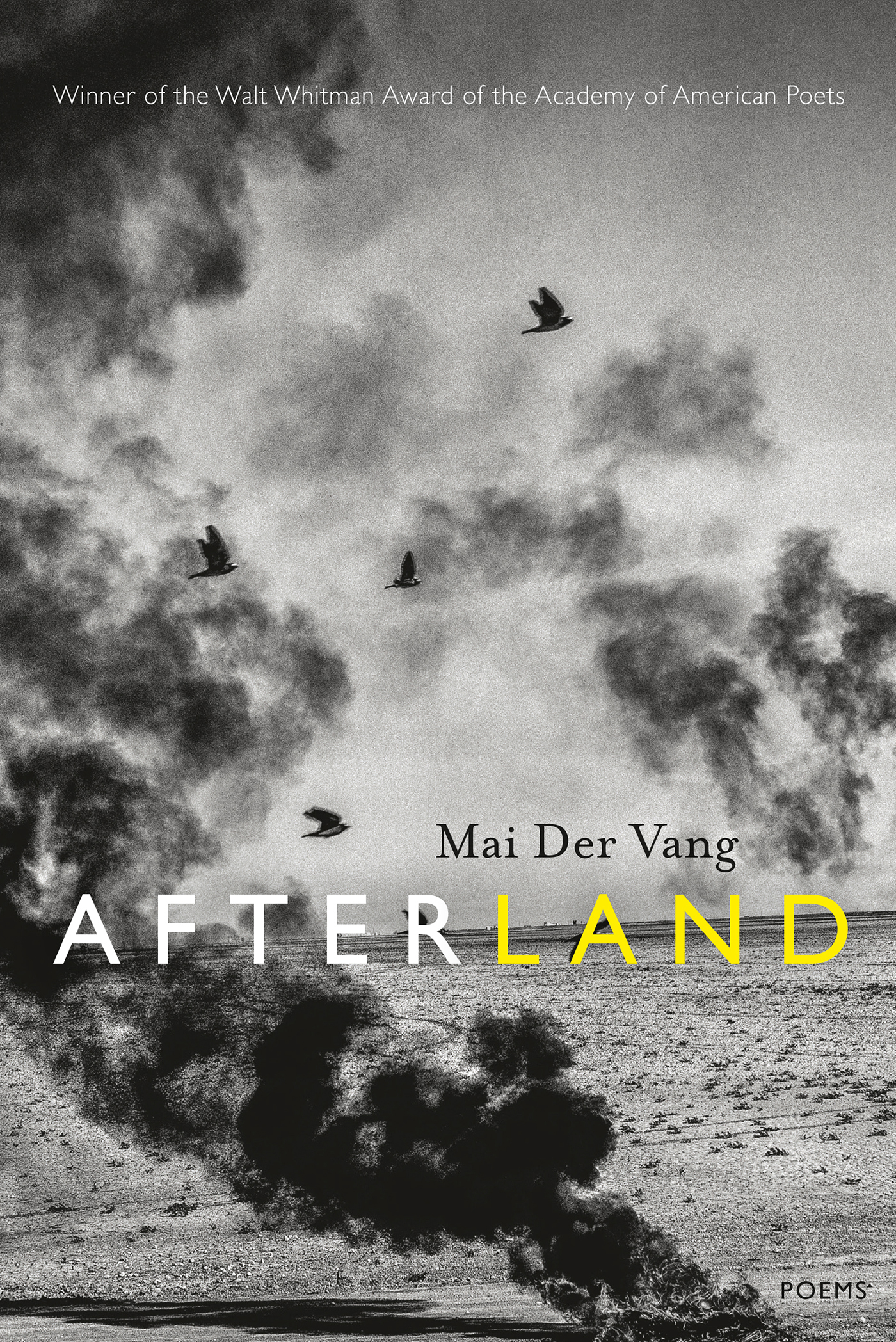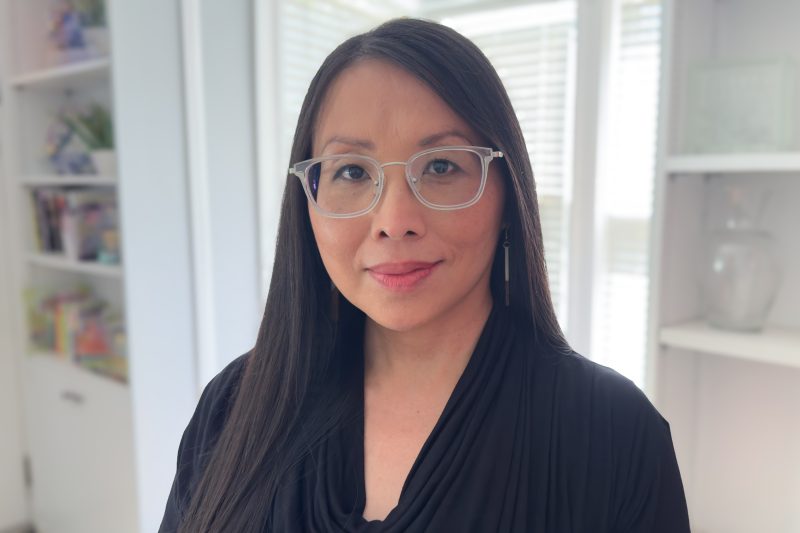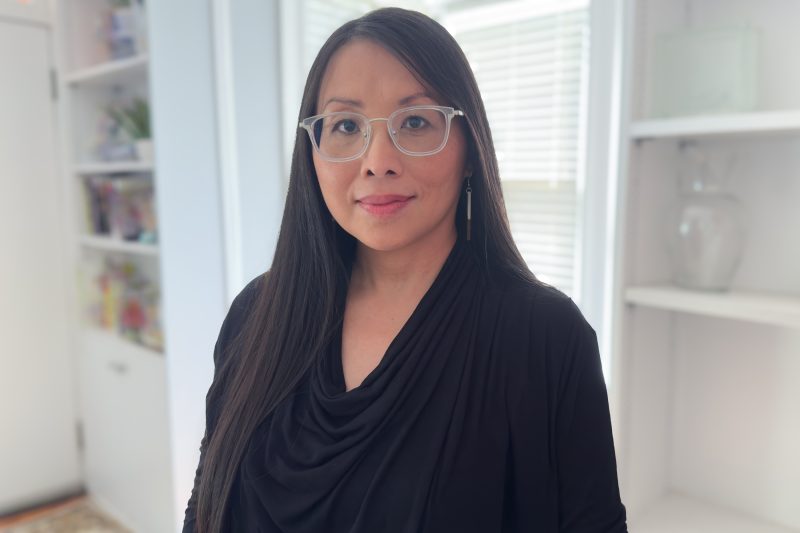

Mai Der Vang
Award-winning Hmong Poet
Walt Whitman Poetry Award-winner
National Book Award Longlist



Readings &
Lecture Topics
- The Flight of the Hmong
- An Evening with Mai Der Vang
Biography
“Moving and deft, dreamlike and discursive, evolving and devolving, imbued with memory.” –LA Review
“Huge and hallucinatory.” –The Rumpus
Mai Der Vang is the author of Yellow Rain (Graywolf Press, 2021), winner of the Lenore Marshall Poetry Prize from the Academy of American Poets, an American Book Award, and a Northern California Book Award. Yellow Rain was also a finalist for the Pulitzer Prize, PEN/Voelcker Award, the LA Times Book Prize, and the California Book Awards. Her first collection, Afterland (Graywolf Press, 2017), received the First Book Award from the Academy of American Poets, was longlisted for the National Book Award in Poetry, and was a finalist for the Kate Tufts Discovery Award. A crucial turn to the ecological and generational impact of violence, Mai Der’s third collection Primordial (Graywolf Press, 2025) is a powerful and rousing meditation on climate, origin, and fate.
The recipient of a Guggenheim and Lannan Literary Fellowship, she served as a Visiting Writer at the School of the Art Institute of Chicago. Her poetry has appeared in Poetry, Tin House, the American Poetry Review, among other journals and anthologies. Her essays have been published in the New York Times, the Washington Post, espnW, and elsewhere. Mai Der also co-edited How Do I Begin: A Hmong American Literary Anthology with the Hmong American Writers’ Circle. She completed residencies at Civitella Ranieri and Hedgebrook. Born and raised in Fresno, California, she earned degrees from the University of California, Berkeley and Columbia University. Mai Der teaches in the MFA Program in Creative Writing at Fresno State.
Short Bio
Mai Der Vang is the author of Yellow Rain (Graywolf Press, 2021), winner of the Lenore Marshall Poetry Prize from the Academy of American Poets, an American Book Award, and a finalist for the 2022 Pulitzer Prize in Poetry, along with Afterland (Graywolf Press, 2017), winner of the First Book Award from the Academy of American Poets. Her third collection, Primordial, was published in 2025 from Graywolf Press. The recipient of a Guggenheim and Lannan Literary Fellowship, her poetry has appeared in Tin House, the American Poetry Review, and Poetry, among other journals and anthologies. She teaches in the MFA Program in Creative Writing at Fresno State.
Visit Author WebsiteVideos
Publications
Primordial
Poetry, 2025
Mai Der Vang’s poetry—lyrically insistent and visually compelling—constitutes a groundbreaking investigation into the collective trauma and resilience experienced by Hmong people and communities, the ongoing cultural and environmental repercussions of the war in Vietnam, the lives of refugees afterward, and the postmemory carried by their descendants. Primordial is a crucial turn to the ecological and generational impact of violence, a powerful and rousing meditation on climate, origin, and fate.
With profound and attentive care, Vang addresses the plight of the saola, an extremely rare and critically endangered animal native to the Annamite Mountains in Laos and Vietnam. The saola looks like an antelope, with two long horns, and is related to wild cattle, though the saola has been placed in a genus of its own. Remarkably, the saola has only been known to the outside world since 1992, and sightings are so rare that it has now been more than a decade since the last known image of one was captured in a camera trap photo in 2013.
Primordial examines the saola’s relationship to Hmong refugee identity and cosmology and a shared sense of exile, precarity, privacy, and survival. Can a war-torn landscape and memory provide sanctuary, and what are the consequences for our climate, our origins, our ability to belong to a homeland? Written during a difficult pregnancy and postpartum period, Vang’s poems are urgent stays against extinction.
Yellow Rain
Poetry, 2021
In this staggering work of documentary, poetry, and collage, Mai Der Vang reopens a wrongdoing that deserves a new reckoning. As the United States abandoned them at the end of its war in Vietnam, many Hmong refugees recounted stories of a mysterious substance that fell from planes during their escape from Laos starting in the mid-1970s. This substance, known as “yellow rain,” caused severe illnesses and thousands of deaths. These reports prompted an investigation into allegations that a chemical biological weapon had been used against the Hmong in breach of international treaties. A Cold War scandal erupted, wrapped in partisan debate around chemical arms development versus control. And then, to the world’s astonishment, American scientists argued that yellow rain was the feces of honeybees defecating en masse—still held as the widely accepted explanation. The truth of what happened to the Hmong, to those who experienced and suffered yellow rain, has been ignored and discredited. Integrating archival research and declassified documents, Yellow Rain calls out the erasure of a history, the silencing of a people who at the time lacked the capacity and resources to defend and represent themselves. In poems that sing and lament, that contend and question, Vang restores a vital narrative in danger of being lost, and brilliantly explores what it means to have access to the truth and how marginalized groups are often forbidden that access.
Afterland
Poetry, 2017
Afterland is a powerful, essential collection of poetry that recounts with devastating detail the Hmong exodus from Laos and the fate of thousands of refugees seeking asylum. Mai Der Vang is telling the story of her own family, and by doing so, she also provides an essential history of the Hmong culture’s ongoing resilience in exile. Many of these poems are written in the voices of those fleeing unbearable violence after U.S. forces recruited Hmong fighters in Laos in the Secret War against communism, only to abandon them after that war went awry. That history is little known or understood, but the three hundred thousand Hmong now living in the United States are living proof of its aftermath. With poems of extraordinary force and grace, Afterland holds an original place in American poetry and lands with a sense of humanity saved, of outrage, of a deep tradition broken by war and ocean but still intact, remembered, and lived.
Articles & Audio
Read What’s In Print
• Reviews: Yellow Rain by Mai Der Vang – Minneapolis Star Tribune
• Books: Briefly Noted – The New Yorker
• Memory and Metaphor in Mai Der Vang’s Afterland – Ploughshares
• Language as a Way of Speaking Back: An Interview with Mai Der Vang – Writing on the Edge
• The Rail’s Best Books of 2017 – The Brooklyn Rail
Selected Writings
AFTER ALL HAVE GONE
I once carried my mollusk tune
All the way to the lottery of gods.
Rain was the old funeral choir
That keened of a hemisphere
Moored under lampwings.
Clouds never left. I knew
The lights would shine clearer
If I closed my eyes, just as
I knew the Pacific would teach
Me to sleep before tying my
Name to the flaming. Here I
Am now at the end of amethyst,
Drizzling another lost sunrise
Inside the quilt of your hand.




